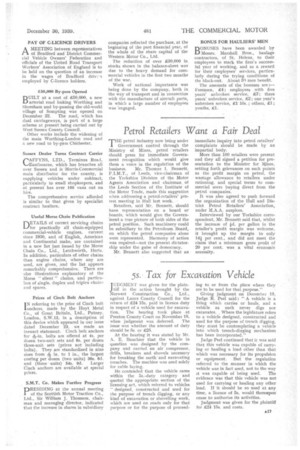Petrol Retailers Want a Fair Deal
Page 19

If you've noticed an error in this article please click here to report it so we can fix it.
T"petrol industry now being under Government control through the Ministry of Mines, petrol retailers should press for immediate Government recognition which would give them a voice in the regulation of the
business. Mr. Thomas I. Bennett, F.I.M.T., of Leeds, vice-chairman of the Yorkshire Division of the Motor Agents Association and chairman of the Leeds Section of the Institute of the Motor Trade, made this suggestion when addressing a petrol-retailers' protest meeting in Hull last week.
Retailers, said Mr. Bennett, should have representation on a board or boards, which would give the Govern-latent a true picture of both sides of the petrol position. Such machinery could be subsidiary to the Petroleum Board,. on which • the petrol companies alone were represented. Harmony of action was required—not the present dictatorship under the guise of democracy.
Mr. Bennett also suggested that an immediate inquiry into petrol retailers' complaints should be made by an impartial body.
More than 100 retailers were present and they all signed a petition for presentation to the Minister for Alines, setting forth grievances on such points as the profit margin on petrol, the wastage allowance to retailers under rationing, and special terms to commercial users buying direct from the petrol companies.
It was also agreed to push forward the organization of the Hull and District Petrol Retailers' Association, under M.A.A. auspices.
Interviewed by our Yorkshire correspondent, Mr. Bennett said that, whilst the increase of id. per gallon in the retailer's profit margin was welcome, it brought up the margin to only 144 per cent., and did not meet the claim that a minimum gross profit of 20 per cent, was a vital economic necessity.




















































